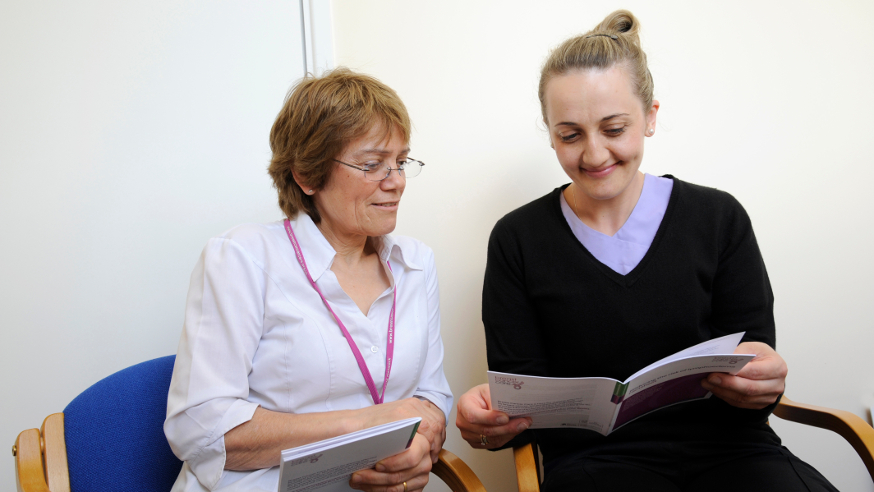
How should the scientific advances we have made in genomics shape the way that care to patients is delivered? That’s the subject of a new review which in particular discusses the role of nurses in making genomic medicine a reality for patients.
Genomics coupled with patient care has become a hot topic, and looks certain to bring about a revolution in the way healthcare is delivered. Having a detailed understanding of an individual’s genetic make-up will not only enable screening and prevention measures to be targeted at those who need it most, but it will also improve diagnostics and treatments. This ‘personalised medicine’ approach to healthcare should move genetics from being in a specialist area into something that is a routine part of the care pathway.
Nurses have a fundamental role in healthcare, and empowering and educating patients is just one aspect. Being a potential patient, I know I would rely on my nurse for additional information into the background of my disease -- if only because I tend to find them more approachable than my GP. I also know I would be asking ‘why is this happening to me?’, ‘can I pass this on to my children?’, and ‘what tests and treatments are available?’ But when it comes down to the genetics and genomics of a disease, most nurses have received minimal education.
Dr Liz Bancroft is a registered nurse at The Royal Marsden NHS Foundation Trust and a researcher within Professor Ros Eeles’s Oncogenetics team at The Institute of Cancer Research, London, so she’s in a good position to assess how best genomics can be brought into the heart of healthcare. Currently working in a clinic where she sees men with a family history of prostate cancer, she talks to them about their genetic risk based on current knowledge. She has written a review on how advances in genomics will, and already are changing patient care, and how nurses from every speciality will need a basic understanding of genetics to deliver optimal care to their patients. Dr Bancroft says: “Nurses need adequate training not only in the science behind genetics, but also in communicating this information to the public in an accessible and useful way. There appears to be a common misconception that genetic information is set in stone and your fate is determined by your DNA. But we now know that for certain diseases such as cancer, there are complex interactions between genetic, environmental and lifestyle factors, and nurses will need to understand this interplay when they assist with the interpretation of an individual’s risk of disease. Providing information and counselling, support and follow-up of people undergoing genetic testing, and assisting in the interpretation of test results will also be needed, so nurses should fully understand the implications of any test results.”
So how can nurses -- who are in a unique position to assist the integration of genetics into everyday practice -- be equipped with the knowledge they need to do their job? Dr Bancroft says: “There are now guidelines for genetics education and competencies in place, and also useful online teaching modules. The Department of Health also recognises that all nurses must be competent in delivering genomic healthcare, and that professional leaders should be prioritising the incorporation of genomics into education and practise. But despite these valiant efforts, genetic and genomic education is still lacking within nursing curricula internationally.”
We are discovering amazing insights into genomics at a breathtaking pace. However, exciting though new research into the effect of gene variants on cancer risk undoubtedly is, its implications for patients are complex and not always obvious. It’s encouraging that the education of frontline NHS staff is beginning to take into account our new knowledge about cancer genes – as a key step to embedding it into routine clinical practice.